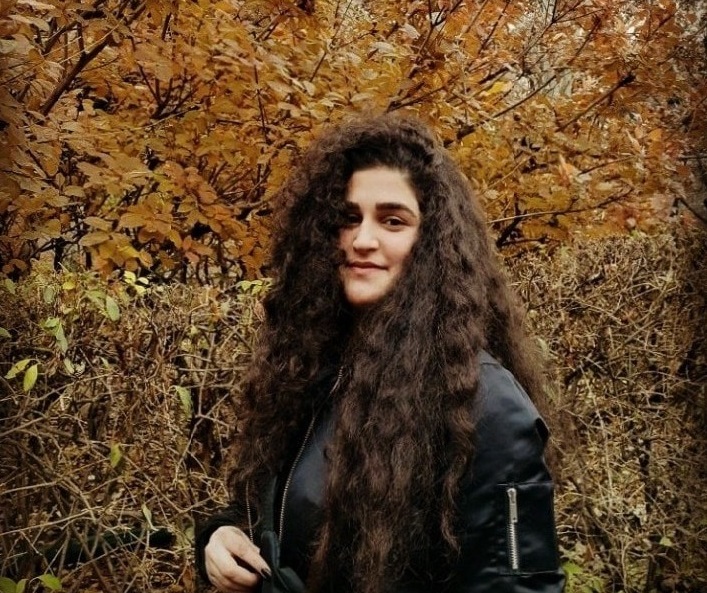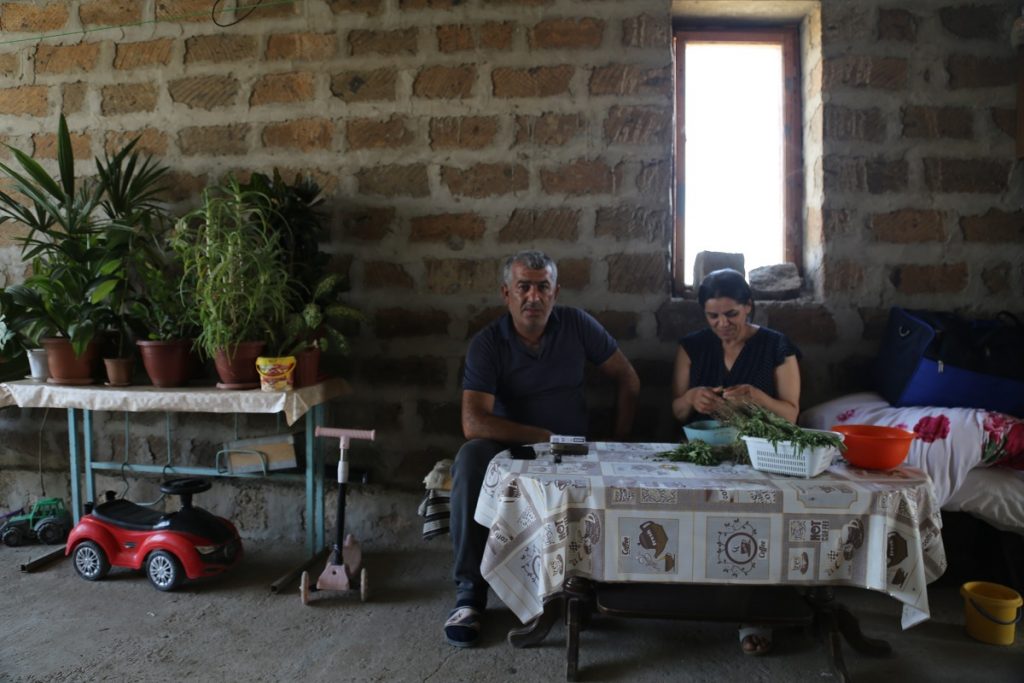Early marriages in Armenia's Yazidi community - Personal stories.
In the Yazidi community living in Armenia, the issue of early marriages is acute. Girls are still kidnapped or married off at the age of 15 or even 12. As a result, many do not even finish school. In general, for many Yazidi girls, getting an education is an unattainable dream; they are simply not allowed to study and get a profession.
However, girls are not the only victims of the old traditions. The older generation (mainly in the villages) believes that boys should not get an education, they are better off doing agriculture.
The Yezidis are considered a closed group, this is the choice of the community – due to the lack of statehood and the risk of assimilation. The Armenian government prefers not to interfere in the internal affairs of the community “with its own constitution”.
Representatives of ten national minorities live in Armenia. The Yezidi community is the most numerous. According to the 2011 census, there were 35,272 Yezidis living in Armenia but according to unofficial data, there are more than 45,000 thousand of them.
- First Yazidi theatre debuts in Armenia with Karabakh war play
- Armenia’s 7-family, Yazidi-only village
- Ethnic minorities in Armenia rarely speak out about their problems
In 2012, the Armenian government approved the draft law “On amendments to the Republic of Armenia’s family code”, which established the minimum age for marriage – 18 years. However, representatives of the Yezidi community in Armenia said the amendment violated their traditions.
“This decision makes Yezidi women unhappy”, said Aziz Tamoyan, chairman of the National Union of Yezidis of Armenia.
Now, according to the Armenian family code, one can get married at the age of 16 with the consent of a parent or legal guardian.
“I was kidnapped when I was 15”- the story of a Yazidi woman
“I was kidnapped at the age of 15, I resigned myself – I didn’t want my parents to be ashamed of me. We did not go to the registry office, did not register the marriage. I gave birth to the first child at 15, at 16 to the second”, says 23-year-old Leila (name has been changed). “I was taken to Yerevan for a consultation, the doctor wanted to call the police. But then he said that he did not want to do business with us and would no longer accept me”.
My husband and I were constantly fighting. Somehow, because of this, I went to my parents, but without the children – my mother-in-law did not allow them to be taken away. Three months later, I returned to my husband’s house, I was accepted as a housekeeper – this was the only way I could communicate with the children.
Once my mother-in-law and her husband beat me, my whole head was covered in blood. The doctor was not called to avoid problems with the law. Then my father took me home, my aunt called the police. One of them was a Yezidi – our relative. He and my parents told me to be silent, they said it was not good for my father’s name.
After this incident, I did not return to my husband and have not seen my children for four years. I thought to go to court, the children would definitely be given to me – my husband did not even recognize paternity, but there is no one to support me”.
After almost a minute pause, Leila recalls – when she was still living in her husband’s house, her son, who was then only five years old, hit her with a stick. To the surprised cry of his mother, he said: “Dad does this too”. Now Leila lives with her parents and does nothing except looking after the household. Her father does not allow her to continue her studies or get a job.
Is the law powerless over the internal communal order?
The experts explain that under the current legislation on cases of violation of the rights of Yazidis, it is impossible to transfer the case to the legal field until there is an applicant. And according to the representatives of the Yazidi community themselves, often marriages are not registered at the registry office, since the brides are minors.
As for the law enforcement agencies, in the event of violations of the rights of the Yazidis, the police basically turn a blind eye to them, not wanting to interfere in “internal community affairs”
In 2022, it is planned to adopt a new criminal code, under which forced marriage will be considered a criminal offense.
MP Rustam Bakoyan, a representative of the Yazidi community in the Armenian parliament, believes that raising the level of education will help reduce the number of early marriages:
“What the state is doing is not enough. The school curriculum includes Ezdiki (Yazidi language), but the literacy level of teachers leaves much to be desired – they often do not even have pedagogical education, they receive 10,000-15,000 drams [about $ 20-30].
People don’t see prospects in education. Parents think that it will be better for their children to do housework and trade. Sometimes there are parents who go against traditions, but the community perceives this ambiguously”.
The story of a rebellious Yazidi woman
Lena is 23 years old and is not married, which rarely happens in the Yazidi community. This girl is one of the few Yazidis who managed to enter the university. In addition, Lena is the author of the Herat podcast about intra-community problems and violations of the rights of girls. However, after the violent reaction of the community representatives, the channel is now temporarily frozen.
About 50 Yezidi families live in the village where Lena was born. She is the first student from this village.
“My sister and I are the only girls who graduated from school, the rest were married off. I respect our traditions, but you can’t live without education. I secretly studied – myself, the teacher helped – over the phone. When I got into the university, the only thing I thought about was how to tell my family. Only the grandfather got angry, but over time he got used to it. And my grandmother started crying, and I realized that it was her dream too”.
Lena says that entering a university brought negative changes to her life. For example, friends are not allowed to communicate with her:
“The elders think that since I’m going to Yerevan to study, I’ll go astray”.

The girl says she intends to open a center to help Yazidi women:
“Mothers basically want their children to continue their education, but if the head of the family says no, then it should be so”.
Lena tells stories of her friends without giving any names.
“You live in dreams, invent a future for yourself, dream of getting an education, return home from school, and there they have already decided – they will marry you off”.
Lena’s mom intervenes in the conversation:
“Now it’s still good, in our time, after the fourth grade, people were married off. And now girls are even allowed to wear trousers, although many daughters-in-law only wear skirts”.
“I wanted to become a doctor – I got married instead”
Aja is 40 years old, she, like many Yazidis, obeyed traditions against her will. But she was more fortunate with a new family than the rest of the girls. Aja, of course, is engaged in farming, but also teaches ezdiks in three regional schools and hosts a program in her own language on the radio. She says that even as a child, she secretly read books from her father’s huge library and loved to study.
“My father wanted me to become a doctor. He was proud of my success in school. But my grandmother fell ill, my mother could not take care of her alone. I had to leave my studies – I did not finish my studies for a year. Then my father married me off. He knew that my future husband was a good man, he was also the son of his friend. That was enough. I was 17, no one asked my opinion”, says Aja.
She talks with warmth and sadness about her students: some are taken out of school after the 4th grade, others are married off at 14. Aja is sure that the situation will not change for the better until there is a revolution in people’s thinking. When asked what kind of relationship she has with her father now, he answers:
“There were six of us – the children. But there was a special bond between my father and me. After I got married, everything changed. At first, my father lowered his eyes when he saw me. I never spoke to him about my resentment to his face. But I probably haven’t forgiven him yet”.



















